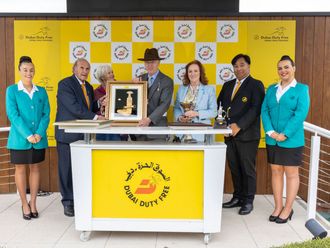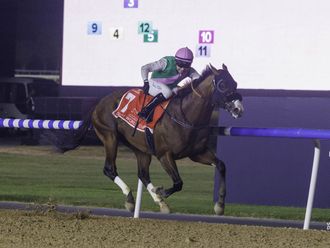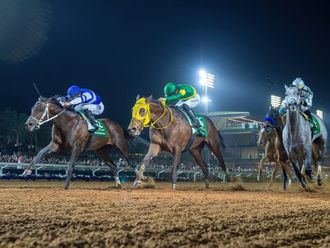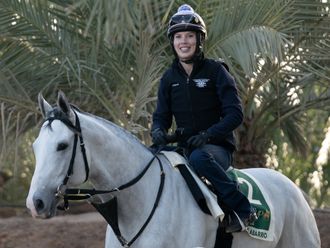“Bob Baffert has an uncannily sharp eye for horseflesh. Nobody has more manifest gifts as a horse whisperer than Baffert,” wrote multiple Eclipse Award-winning writer William Nack, in his tribute in GQ magazine.
This accolade resonates with greater significance following the American’s history-making exploits with American Pharoah, who became only the 12th horse to complete the Triple Crown and only the first in 37 years after Affirmed.
That fact that only 11 trainers before him have successfully pulled off the feat, often referred to as a ‘Grand Slam’, demonstrates its complexities and level of difficulty.
Ability and desire, coupled with good science and research, have ensured that almost every record thought to be unattainable in sports, has been crushed at some point of time.
Roger Bannister ran the first four-minute mile in 1954, Bob Beamon soared to 8.9 meters (29 feet 2½ inches) in the long jump at the 1986 Olympic Games while Bradley Wiggins shattered cycling’s iconic ‘hour’ record when he covered an unimaginable distance of 54.526km (33.88 miles) earlier this year.
Sometimes I believe that sport was intended to throw down challenges that present the most extreme tests — faster, higher, stronger, like the Olympic Games urges.
In horse racing the Triple Crown is regarded as the ultimate ordeal for horse and man. It represents the sport’s rarest feat — to win three races, at different distances and dissimilar tracks, within a span of five-weeks.
Imperious fashion
American Pharoah did not just win the Kentucky Derby (G1), Preakness Stakes (G1) and Belmont Stakes (G1). he did it in imperious fashion, looking more and more formidable with each race.
Victor Espinoza, his 43-year-old Mexican-born jockey’s role cannot be denied. He rode three flawless races to give his horse every chance of winning.
But the real winner was Baffert, who Dubai racing fans will remember as a two-time Dubai World Cup winning handler with Silver Charm and Captain Steve, and who also survived a heart-attack in the Emirate on the eve of his third attempt to win the world’s richest race with a horse called Game On Dude.
Intolerably handsome, funny and talented, Baffert is the perfect advertisement for a sport that has too often been critized for being too ‘niche’ and excessively aristocratic.
He is charismatic, devoted to his craft and a journalist’s delight.
Describing what made American Pharoah special he told time.com: “He moves like no other horse I’ve ever had. Somebody measured: his stride is two feet longer than Secretariat’s. He just moves over the top of the ground. He’s quick, he’s fast and he doesn’t use a lot of energy. So that’s why he dominates.
“He handles people. He’s been surrounded by hundreds of people. And he’s a kind horse. He’s very quiet, kind, but competitive. He wants to dominate. And when he runs, he always look like he’s having fun.”
Baffert, who is based at Louisville, Kentucky, is already mapping out plans for his stable star.
Among the races being consider are the Jim Dandy at Saratoga in New York on August 1; the Haskell Invitational at Monmouth in New Jersey on August 2; the Pacific Classic at Del Mar on August 22; and the Travers at Saratoga on August 29.
Happy on the track
“He’s an athlete. We have to keep him moving,’’ Baffert said. “He’s so happy when he’s on that track.’’
However, the ultimate goal for American Pharoah is likely to be the $5 million (Dh18.36 million) Breeders’ Cup Classic, on October 31 at Keeneland in Lexington, Kentucky, where he will eventually be put to stud with a commanding $200,000 a pop his projected fee.
When somebody recently asked him if winning the Triple Crown has turned his life upside down, his reaction was: “The phone’s buzzing non-stop. There are some numbers I don’t know. I say thank you to a random number. I’m afraid to say, ‘who’s this?’ in case I’m supposed to know. A lot of people I haven’t heard from in a long time…”
Baffert’s humour is stuff of legend and his response to a question if it will take another 37 years to win the Triple Crown was: “Well, I won’t see it if it’s 37 years.”
But he also has the rare ability to seamlessly switch from comic to realist.
“I think the game has changed,” he observed. “A lot of people skip the second one [Belmont Stakes]. It will take another horse like this to come along. Every time I run him, he shows me a new dimension.”
And his response to what makes a great trainer was as simple as: “If you love the horse, they’ll respond. You have to love the horse.”
You have just got to love this guy, he’s so down-to-earth.












